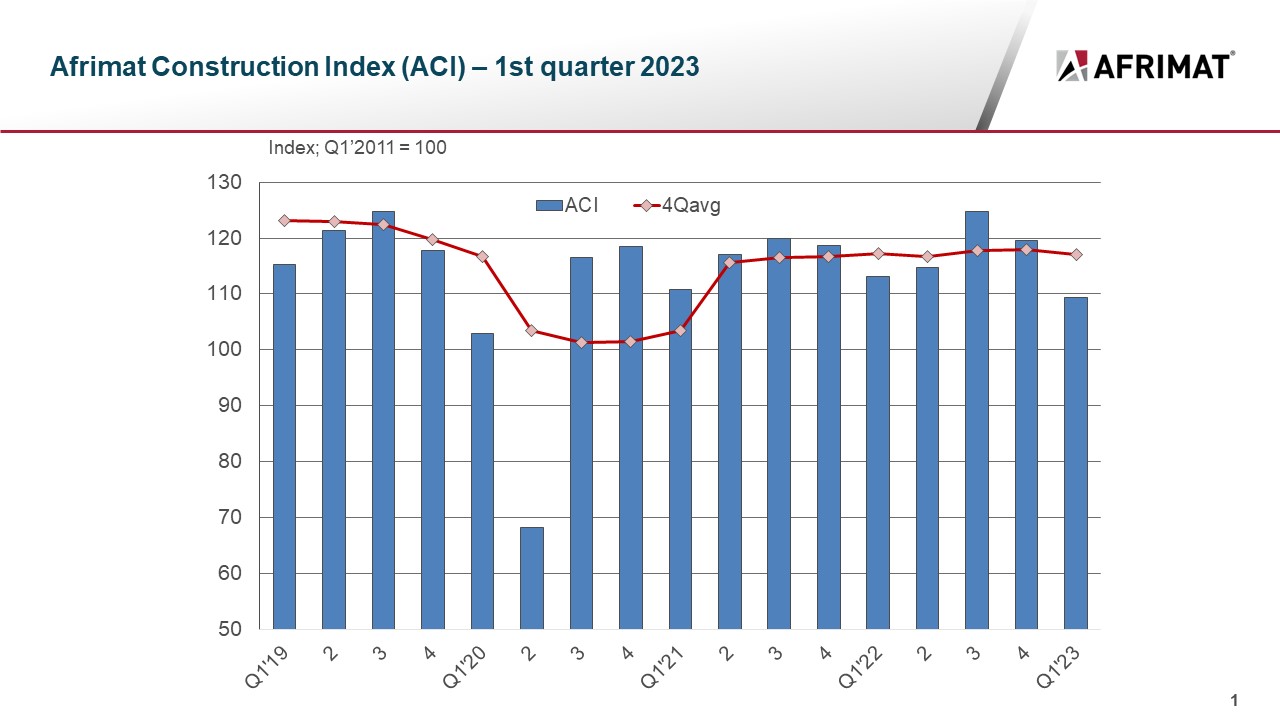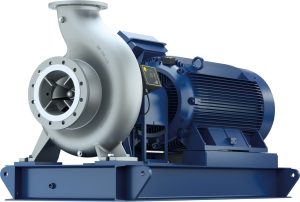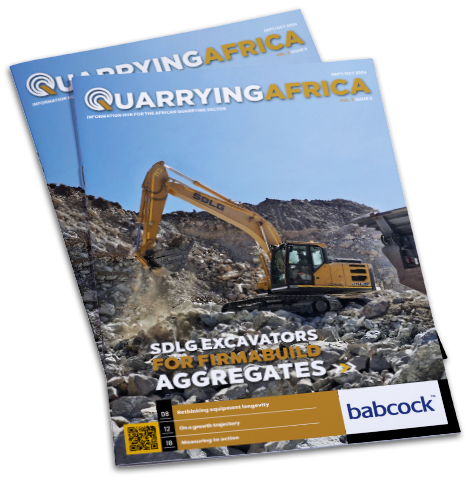Afrimat, the JSE-listed open pit mining company providing industrial minerals, bulk commodities and construction materials, has released the findings of the Afrimat Construction Index (ACI) for the first quarter of 2023. The ACI is a composite index of the level of activity within the building and construction sectors compiled by economist Dr Roelof Botha on behalf of Afrimat.
According to Dr Botha, the poor performance of the economy over the past two quarters was evident in construction sector activity, with the ACI declining by 8,6%, compared to marginal growth in real GDP of 0,4% quarter-on-quarter. “The year-on-year decline in the ACI was more muted, with the ACI declining by 3,4%, compared to GDP growth of 0,2%,” says Dr Botha.
A highlight of the first quarter reading was the consolidation of positive growth for value added by the construction sector, with real expansion recorded both on a quarter-on-quarter and year-on-year basis.
“It should be pointed out that the construction sector component of GDP only includes the value added by contractors, whilst the ACI is based on a composite index of construction sector activity that includes another eight indicators, all of which are measured in real terms, i.e., adjusted for inflation. The ACI is therefore a substantially more comprehensive barometer of the state of the construction sector.”
Compared to the first quarter of 2022, i.e., year-on-year, the outstanding performances were the increases of almost 12% in construction sector employment and more than 4% in value added by the sector. Two other indicators also recorded positive growth rates, namely retail trade sales for hardware and sales of building materials.
“It is evident that the results of the ACI in the first quarter compared to the fourth quarter of 2022 were mainly influenced by sharp declines in the values of building plans passed and buildings completed in the larger municipalities of South Africa.”
The highest interest rates in 15 years have served to dampen the demand for new houses, as also illustrated by the sharp decline in the number of mortgage bond applications administered by BetterBond. Due to the pervasive negative influence of higher interest rates on most of the economy’s demand components (via raising the cost of capital and credit), a host of economic indicators started reversing the recovery trend from the Covid pandemic.
According to Dr Botha, construction sector activity has been hit hard by the increases in the Reserve Bank’s repo rate since the end of 2021. “The Monetary Policy Committee of the Reserve Bank seems to have overplayed its hand in continuing to raise the official bank rate against the background of a pronounced drop in consumer and producer price indices.”
On a positive note, he is confident that the rate hiking cycle is nearing its end, with both the producer price index (PPI) and the consumer price index (CPI) having peaked and beginning to enter a downward trajectory. “The PPI has dropped from a high of 18% in July last year to 8.6% in April 2023, a decline of 52%, whilst the CPI is down from a peak of 7.8% to 6.8% currently, a drop of 12.8%.”
Another positive development is the increase in the ratio of capital formation to GDP by both the private and public sectors during the first quarter of 2023. “Although the current combined level of 15.1% remains well below the average for emerging markets, the upward trend is encouraging,” says Dr Botha.
More good news is the fact that the Government has effectively admitted its negligence in the areas of maintaining and expanding the country’s infrastructure by creating two Crisis Committees to deal with these challenges.
CEOs from some of South Africa’s largest companies have also agreed to lead work streams set up to support Government in tackling the country’s prevailing crises in the energy and transport sectors, as well as debilitating levels of crime and corruption. Following a meeting between organised business and government on June 6, 2023, an agreement was reached to form a partnership to tackle the three issues, which have emerged as major obstacles to growth, development and job creation. Key to this new initiative is the undertaking by business leaders to collaborate with the National Energy Crisis Committee (Necom) and the National Logistics Crisis Committee.
“Hopefully, a much greater emphasis on private sector involvement in the planning and execution of infrastructure maintenance and development will eventually pave the way for a revival of construction sector activity in South Africa,” says Dr Botha.
According Afrimat CEO, Andries van Heerden, the group remains exceptionally well positioned to reap the benefits of any upswing in construction sector activity.
“Our balance sheet is technically debt free and supported by strong cash generation. We see many opportunities across our segments, as evidenced by the recent announcement of our acquisition of Lafarge South Africa, where we saw the opportunity to bulk up our Construction Materials segment in particular. This exciting deal forms part of our ongoing diversification strategy and will increase our offering in the construction industry by expanding our quarry and readymix operations nationally and allowing for Afrimat to enter the cement value chain competitively. To quote Warren Buffett, ‘Be fearful when others are greedy and greedy when others are fearful’.”
Van Heerden adds that Afrimat will continue to focus on projects both consistently and diligently. “We have such strong existing projects to execute on like the Jenkins, Nkomati and Glenover mines that I am genuinely excited for the next eighteen months. These projects will increase our volumes, especially of iron ore and anthracite volumes available to the local market, and of course increase our product diversification as additional volumes of phosphate and vermiculite are introduced into the mix. This latest acquisition announced will now bolster this further.”
He adds that he was also hopeful that in the next two years, the private sector will assist proficiently in reducing the need for loadshedding and that Government realises that it needs, at the very least, to maintain infrastructure more than it is at present. “This will greatly benefit our Construction Materials and Industrial Minerals divisions as Afrimat is well positioned to provide the aggregates and products required for infrastructure maintenance and upgrades.”





